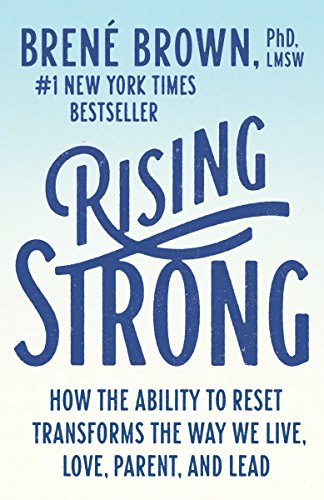Rising Strong: How the Ability to Reset Transforms the Way We Live, Love, Parent, and Lead
amazon.com
Rising Strong: How the Ability to Reset Transforms the Way We Live, Love, Parent, and Lead

Can we lean in to the vulnerability of emotion and stand in our truth? Are we willing to lean in to the initial discomfort of curiosity and creativity so we can be braver with our lives? Do we have the courage to rumble with our story?
We must reclaim the truth about our lovability, divinity, and creativity.
they don’t try to avoid emotions—they are feeling machines who think and engage with their own emotions and the emotions of the people they love, parent, and lead.
We run from grief because loss scares us, yet our hearts reach toward grief because the broken parts want to mend.
We can’t be brave in the big world without at least one small safe space to work through our fears and falls.
Both the scientific and the artistic methods provide us with ways of knowing.
To love at all is to be vulnerable. Love anything and your heart will certainly be wrung and possibly be broken. If you want to make sure of keeping it intact, you must give it to no one, not even an animal. Wrap it carefully round with hobbies and little luxuries; avoid all entanglements. Lock it up safe in the casket or coffin of your
... See moreWhat are the consequences of putting down the weapons and taking off the armor?
When we practice generating compassion, we can expect to experience our fear of pain. Compassion practice is daring. It involves learning to relax and allow ourselves to move gently toward what scares us….In cultivating compassion we draw from the wholeness of our experience—our suffering, our empathy, as well as our cruelty and terror. It has to
... See more